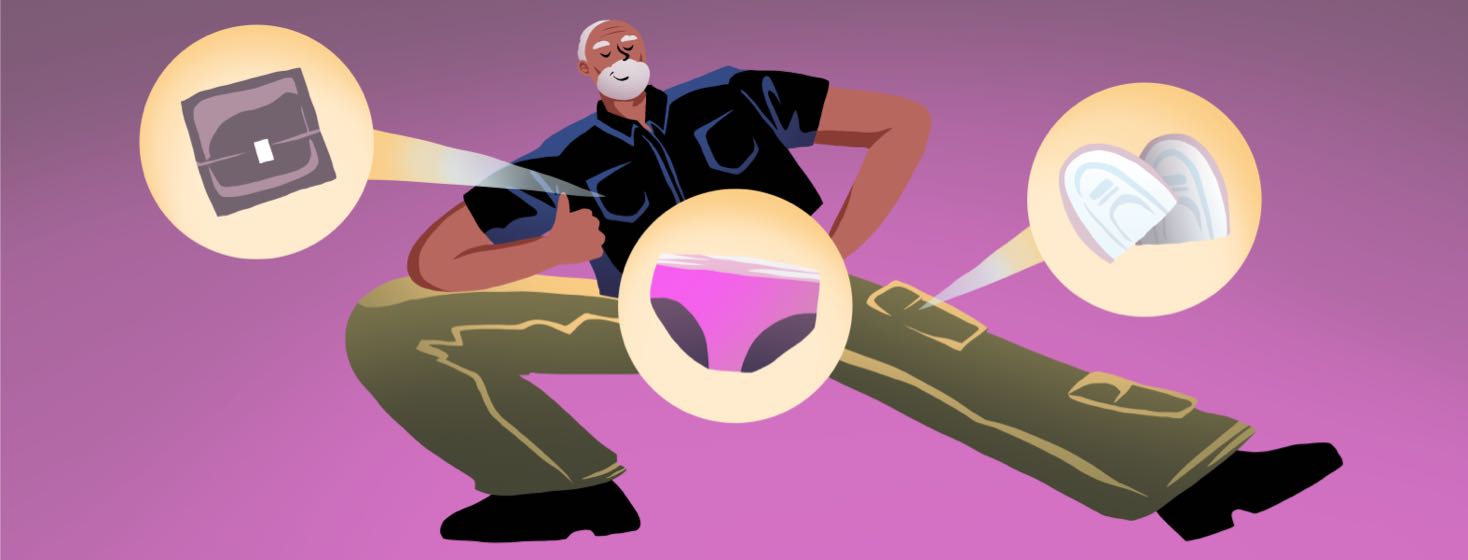How to Outsmart Urinary Leakage When You Are Out and About
In working with men after their treatment for prostate cancer, I have had the good fortune to witness male vulnerability. It is something that I long for other people to learn about, because it seems that today’s culture does not allow for men to speak openly about urinary and sexual matters.
After treatment for prostate cancer, many men leak urine for a time. They need to find ways to address their incontinence in a way that allows their privacy and maintains their masculinity.
Changing incontinence pads for urinary leakage
Following surgical removal of the prostate, some men require diapers for the first few weeks. Some doctors recommend that men try to wean themselves down to pads once the urinary incontinence starts to lessen. This is psychological in part, perhaps because the stigma of wearing a diaper can weigh heavily on the mind.
Once pad use can begin, I think it is important to plan ahead for how often pads should be changed. Some men change them with the slightest drop of urine, and others allow them to become saturated. Neither of these strategies is ideal. Rather, it can help to change pads at similar times each day, every several hours on a set schedule.
But how does one accomplish changing pads discreetly while at work or when out running errands?
Tricks my patients have tried
One of my patients taught me an excellent trick. He had his prostate removed and was planning to go to Disney World with his grandchildren. Because he knew he needed a stash of pads at the ready and didn’t carry a bag, he bought shirts with two breast pockets and wore cargo pants with many pockets within them. He placed one pad within each of the pockets of his clothing and rode on Space Mountain with glee and without worry.
Another one of my patients experimented with different kinds of pads. He found the urinary pads for women to be more absorbent than the pads marketed for men. (Could this be because the use of urinary pads by women is more historically common than for men? I don’t know.)
Anyway, he used the women’s pads and cut them in half for comfort because he did not need protection in the back. He placed the cut portion toward the front of his boxers, closer to the navel. Then he placed his penis against the pad, and voila! He found he did not have to change pads as often. And they were not as irritating to the skin along the perineum in the smaller size he fashioned.
A highly creative patient used pads but found that they overflowed through his underwear. To address this, he purchased “period panties” for women. These are absorbent, washable underwear for menstruating women. This patient was able to contain his urine inside his knickers because what the pad couldn’t absorb, the period panties could. He required a size extra-large and even removed his dungarees to show me how well they fit him! I was most impressed with his ingenuity.
Other options
Some men, however, do not transition as easily to pads as others. In cases where urine is gushing out whenever a man gets in and out of his car, a nice alternative to diapers may be a penile clamp. A clamp places gentle pressure on the urethra to block urine loss. When the clamp is removed, the release of pressure allows for normal urination.
A study from 2021 analyzed Amazon customer reviews of various penile clamps sold over the last decade. Penile clamps were described favorably as “effective incontinence control.”1
In writing these words, I am filled with even more reverence for men in general. These practical and resourceful ideas show how men problem-solve and discover ways of living that would have never crossed my mind. Many thanks to the men who taught me these lessons. If any of these methods work for you, I will be sure to remind these guys how very clever they are.

Join the conversation